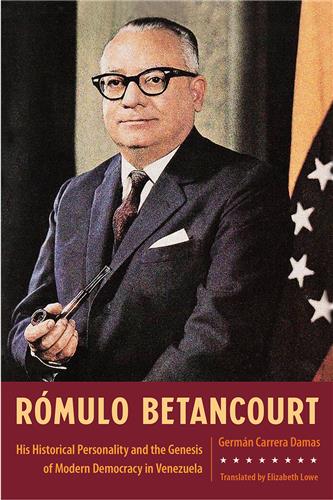The Cuban Democratic Experience
The Auténtico Years, 1944-1952
Charles D. Ameringer
Paper: $24.95
Charles Ameringer looks at eight unique years in Cuban history--1944 to 1952--that generally have been ignored by most commentators, and examines the cultural, economic, political, and social features of the era.
Specialists divide the history of Cuba into three periods: the Plattist Republic (1902-1933); the Batista era (1933-1958); and the Cuban Revolution and Castro era (1959 to the present). Ameringer points out that this division glosses over the years when Cubans had a functioning democracy and, he contends, enjoyed a rare freedom of expression and an artistic flowering.
These years comprised the administrations of Ramón Grau San Martín and Carlos Prío Socarrás, both freely elected leaders of the Cuban Revolutionary Party-Auténtico (PRC-A). They avowed their dedication to fulfill the goals of the Revolution of 1933 (economic liberation and social justice) but failed to live up to those expectations, and their governments ultimately were marked by corruption and violence.
Without attempting to rehabilitate the Auténticos entirely, Ameringer probes the Cuban consciousness in order to understand the strengths and weaknesses of Cuban democracy during this special period. He concludes that the Auténticos eventually lost the respect of the people, and, despite significant reforms, their administrations led to the return to power of the opportunistic Fulgencio Batista.
Although written in a readable style, this book offers serious, solid analyses of key developments that fill major gaps in the current understanding of the circles of power in prerevolutionary Cuba.
Charles D. Ameringer, professor emeritus of Latin American history, Pennsylvania State University, is the author of The Caribbean Legion: Patriots, Politicians, Soldiers of Fortune, 1946-1950 and The Democratic Left in Exile: The Antidictatorial Struggle in the Caribbean, 1945-1959.
No Sample Chapter Available
Awards
Arthur P. Whitaker Prize - 2001
"a necessary addition to any library on Cuba." - Caribbean Studies
--Caribbean Studies
"The big lessons of this book--that Cuba had a working democracy, with strengths as well as weaknesses--is a fundamental one that has too easily been forgotten. In this regard alone, Ameringer makes a noteworthy contribution."
--Latin American Research Review
"The neglect of the Autentico Party was a glaring omission in the historiography, and Ameringer helps to correct it and competently so. The big lesson of this book--that Cuba had a working democracy, with strengths as well as weaknesses--is a fundamental one that has too easily been forgotten. In this regard alone, Ameringer makes a noteworthy contribution."
--Latin American Research Review











